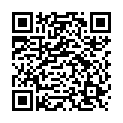|
|
|
| Module code: MAB_19_IP_5.03.AGF |
|
|
1V+1P (2 hours per week) |
|
3 |
| Semester: 5 |
| Mandatory course: yes |
Language of instruction:
German |
Assessment:
Written exam 90 min.
[updated 05.11.2020]
|
MAB_19_IP_5.03.AGF (P241-0225, P241-0226) Mechanical and Process Engineering, Bachelor, ASPO 01.10.2019
, semester 5, mandatory course, Specialization Industrial Production
|
30 class hours (= 22.5 clock hours) over a 15-week period.
The total student study time is 90 hours (equivalent to 3 ECTS credits).
There are therefore 67.5 hours available for class preparation and follow-up work and exam preparation.
|
Recommended prerequisites (modules):
MAB_19_A_2.01.CAD CAD 3D Modeling
MAB_19_A_2.02.TFL Manufacturing Process Technology (with Lab Course)
MAB_19_M_4.07.FBG Production-Optimized Component Design
[updated 06.04.2020]
|
Recommended as prerequisite for:
|
Module coordinator:
Prof. Dr. Jürgen Griebsch |
Lecturer:
M.Eng. Tobias Häfele
[updated 06.04.2020]
|
Learning outcomes:
After successfully completing this part of the module, students will be familiar with additive manufacturing technologies and be able to apply their knowledge about it.
They will be familiar with the typical fields of application for different procedures and also their limits. Students will be proficient in the production-ready design (CAD; bionic principles) of components manufactured using an additive process. They will be able to evaluate the feasibility of existing designs or drawings and to recognize cost drivers of generative manufacturing processes and thus, to name the most economically reasonable production method for components.
[updated 05.11.2020]
|
Module content:
Introduction to additive manufacturing / basic concepts and terms
- Introductions to the various technologies and areas of application
- Visits to view selected processes within the htw saar
- Specialization laser-sintering technology (plastics)
- Introduction to RP Software
- Effects of additive manufacturing on the product development process
- Production-oriented design for additive manufacturing processes
- Feasibility study
- Profitability calculation
- Quality considerations
[updated 05.11.2020]
|
Teaching methods/Media:
Instruction with practically-oriented exercise segments, laboratory in small groups
[updated 05.11.2020]
|
Recommended or required reading:
[1] Gebhardt A.; Additive Fertigungsverfahren _ Additive Manufacturing und 3D-Drucken für Prototyping _ Tooling _ Produktion; Hanser Verlag; 2016
[2] Breuninger J., Becker R., Wolf A., Rommel S.; Generative Fertigung mit Kunststoffen; Springer Verlag; 2013
[3] Gibson I., Rosen D., Stucker B.; Additive Manufacturing Technologies _ 3D-Printing, Rapid Prototyping, and Direct Digital Manufacturing
[updated 05.11.2020]
|

